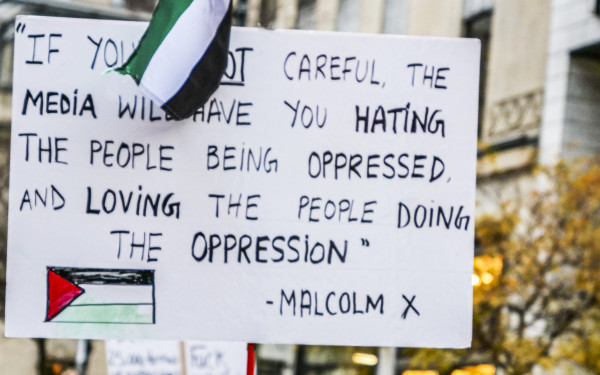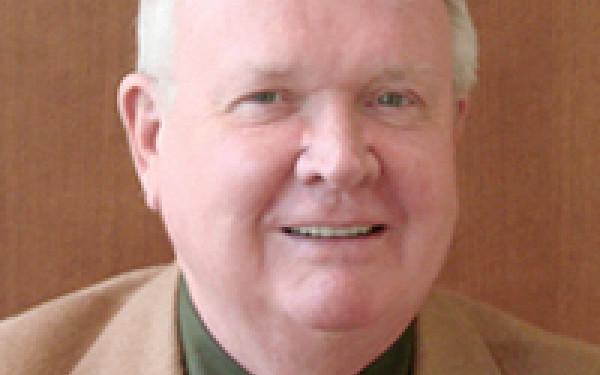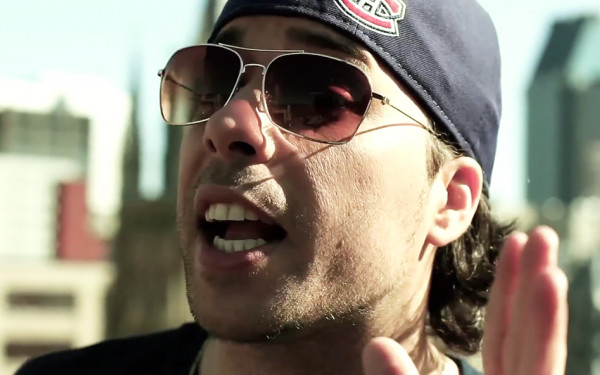Busting Out Hebrew Beats
Hip-Hop Artist Socalled Blends Religious Traditions with Inner-City Funk
“The first rap I ever wrote was called ‘The Jew Funk’,” the wiry, well-spoken man sitting in front of our class said. “I remember there was this one line where I was like ‘Baruch Atah Adonai, mother fucker!’ Which is a Jewish prayer.”
Josh Dolgin smiled nervously and joined in the class’s laughter. He wore a hoodie and jeans and sported a somewhat receding Jew-fro. His tiny dog Poopsie sat on his lap. He was a casual-looking person, though a little jumpy.
Dolgin, also known by his stage name Socalled, is what I would consider a professional creative. His endeavors span the artistic spectrum. He is a rapper, producer, professor, cookbook author and composer, among other things. With what he calls a constraining background in classical piano, the Montreal-based Dolgin has spent his life making music.
Jazz and funk were his favourite music genres growing up. He was always a fan of African-American music and culture, which led to his discovery of hip-hop in the 1980s.
“I could relate to the fact that it comes from inner cities and repressed minorities [making] beautiful art with what they have,” he said. The artist developed a love for the genre and wanted to start making hip-hop music, but to his parents, his classical piano training came first. Dolgin joked that he was “bribed, forced and beaten emotionally” to practice piano.
“The thing was, I was pretty good. I couldn’t give up easily,” he added. Once the pressure subsided, he began to play jazz improv piano and the accordion, further expanding his creative musical side.
Dolgin describes himself as a shy teenager and a “weird minority” growing up in the small town of Chelsea, Quebec. As the only Jewish person at his school, he stood out. That changed when he moved to Montreal to study literature at McGill. “There’s a sea of ‘Hebes’ here,” Dolgin said with a giggle. He was thrust into an environment where he was no longer unique due to his culture, one where he could further develop his identity and creativity.
“Hip-hop is about representing who you are, where you are,” Dolgin said. “It’s about sampling and reflecting my culture.” Socalled often uses samples from Jewish music in his beats, but there is diversity in his selection. “I try not to remember where any of the sounds I find are from. I look for isolated sounds. Sampling is about turning shit into gold for me—finding weird sounds and trying to turn that into good stuff.”
Sourcing songs to sample began in the 1990s for Socalled, when “everyone was throwing out their records to make room for CDs.” Garbage bins were filled to the brim with old LPs, and Socalled found every kind of music out there to use for his music production. “This was when I started finding Jewish and Hebrew music to sample,” he said.
A few years later, a 2006 American Jewish Life Magazine feature about the artist catapulted him to notoriety in the Jewish community. Still, for Socalled, it was about expressing his identity through music more than trying to create Jewish hip-hop. He’s been making hip-hop since before computers existed, back when you had to buy expensive four-tracks and drum machine keyboards to make beats.
Collaboration, both with other artists and different forms of art, is a big part of Dolgin’s creative process. From his puppet musical The Season, to the cookbook he wrote with his mother’s recipes, to his theatre class at Concordia, Socalled constantly works with different people on different platforms.
“I never wanted to be a musician,” Dolgin told the class. “I would still rather make movies, it’s a more complete collaboration of art.”
In an impromptu tutorial, the rapper shows his class how to layer beats, samples and bass with an MPC. Choosing a sample of a Hungarian women’s choir and a slow but catchy bass line, Socalled creates a song in a matter of seconds.
“Come on, kick it!” Dolgin says to Yassin Alsalman, the professor interviewing him and his long-time collaborator. “Kick it professor!” The class turns into a live concert as Alsalman begins to freestyle rap over Socalled’s improvised beat. Students’ hands fly in the air and heads are bobbing—Dolgin’s skill as a multi-faceted performer is evident, Poopsie still on his lap.

_900_507_90.jpg)




